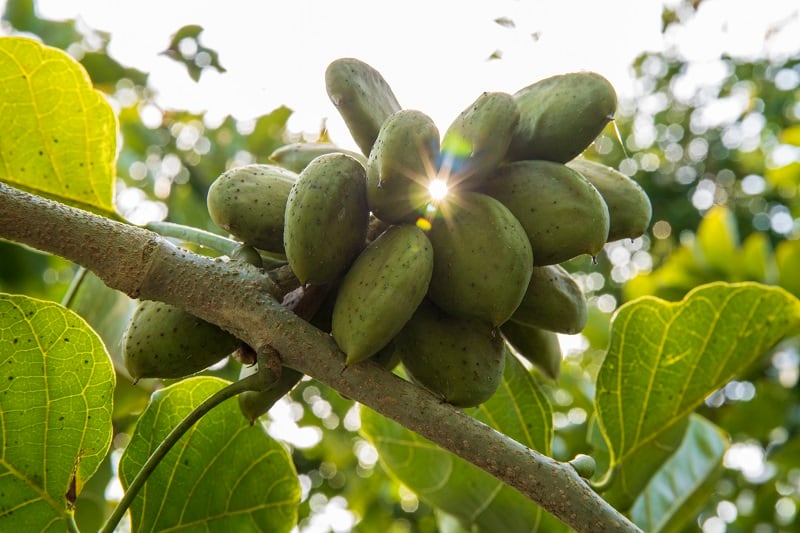US-based Terviva has announced fresh investment from Chevron Renewable Energy Group to scale pongamia oil for biofuel production
The companies now hope to scale Terviva’s pongamia-growing operations and drive greater availability of pongamia as a feedstock for renewable fuels production.
It comes after Mitsubishi Corporation invested in Terviva in 2023 with the aim of bringing a biofuel feedstock made from pongamia oil to market.
Why pongamia?
Native to southeast Asia, Australia, and western Pacific Islands, pongamia is a versatile and valuable tree species.
It is fast-growing and drought-resistant with nitrogen-fixing capabilities that can improve soil health. It can thrive in marginal lands and poor soil conditions and requires minimal inputs like fertilisers or pesticides.
Other companies are looking to pongamia as a potential source of biofuel. Rio Tinto has launched a biofuels pilot project in Australia to trial the use of pongamia seed oil as a feedstock for renewable diesel production. The company is in the final stages of acquiring around 3,000 hectares of cleared land near Townsville in north Queensland. This land will be used to establish pongamia seed farms to study growth conditions and measure seed oil yields.
Can pongamia revitalise agricultural land and communities?
Since forming in 2010, Terviva has planted tens of thousands of pongamia trees in Hawaii and Florida and has begun planting projects in India. Research trials so far span nearly 2,000 acres in the US and Australia. The high priority locations for planting are Florida, Australia, and India.
Terviva says its pongamia trees produce three or more metric tonnes of beans per acre and feature a high oil content.
The harvested beans are processed to produce oil, which can then be turned into three income streams: a food ingredient, animal feed, and a feedstock, or raw material, for the biofuels industry.
The company says the combination of high oil yields with low inputs can create biofuels with reduced greenhouse gas emissions compared to traditional fossil fuels.
“Crude pongamia oil can be converted into biodiesel, renewable diesel, or sustainable aviation fuel,” says Naveen Sikka, founder, and CEO of Terviva.
In working with Chevron Renewable Energy Group, the company believes it can increase the availability of feedstocks for production of these fuels while promoting its mission to revitalise agricultural land and communities. “This relationship benefits stakeholders up and down the value chain, from farmers cultivating pongamia to fleets looking for lower carbon fuels,” he says.
The partnership is set to generate economic opportunities and promote environmental stewardship, Sikka believes. That’s because pongamia is resilient and can survive with erratic water access and tolerate extreme heat. Additionally, pongamia’s nitrogen-fixing properties enrich soils while reducing reliance on synthetic fertilisers.
The hunt for renewable energy sources
“Increasing the availability of lower carbon feedstocks for renewable fuels production is going to be an essential component for continued growth of the biofuels industry,” adds Jan Slaghekke, vice president of business development and international operations for Chevron Renewable Energy Group.
“We are excited by the work Terviva is doing to scale the production of pongamia as a lower carbon feedstock for the biofuels industry and look forward to our relationship in helping this reach further commercialisation.”




